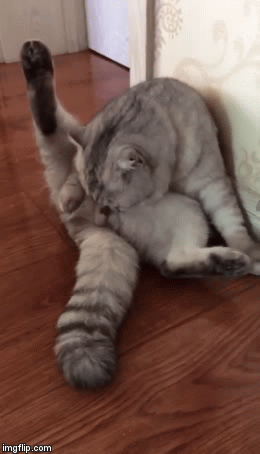You’ve heard it before. “Spay and neuter your pets!” There are several reasons why it’s important, but did you know that your pet’s health is a big one? It’s not all about preventing unwanted litters of puppies and kittens. From testicular tumors to pyometra, the medical benefits of spaying and neutering your dogs and cats are clear.

Prevention of pyometra is a great reason to spay your pets. Pyometra is a potentially life-threatening infection of the uterus that can occur in any intact female cat or dog. A few factors that contribute to it include hormonal changes after estrus and the accidental introduction of bacteria to the uterus during estrus, when the cervix is relaxed.
Pet owners don’t often detect pyometra until it is advanced. At this point, the best chance your pet has of surviving this infection is to have an emergency spay surgery. The more advanced the infection is, the more risk is involved with the surgery. Unfortunately, pyometra is not terribly rare. It’s painful and quickly causes a systemic infection. Pyometra is an emergency.
Yes, dogs and cats can get mammary tumors just like people can. In fact, they are one of the most common types of tumor in unspayed dogs. While less common in cats, they are far more often malignant when they do occur in our feline friends.
 Again, we have a risk of tumors associated with intact pets. Testicular tumors are fairly common in older dogs, though more rare in cats. Most often, these tumors are benign, but there are actually several different types of cancer that can occur, and it’s not rare for more than one type to affect the same patient. Testicles that are not descended are at even higher risk to have malignant tumors. Benign or malignant, both testicles must be surgically removed by neutering to prevent painful or even life-threatening tumor growth.
Again, we have a risk of tumors associated with intact pets. Testicular tumors are fairly common in older dogs, though more rare in cats. Most often, these tumors are benign, but there are actually several different types of cancer that can occur, and it’s not rare for more than one type to affect the same patient. Testicles that are not descended are at even higher risk to have malignant tumors. Benign or malignant, both testicles must be surgically removed by neutering to prevent painful or even life-threatening tumor growth.
There is also reason to believe that testicular tumors are hereditary, so dogs with any history of them should not be allowed to reproduce.
Both male cats and dogs are at significantly higher risk of wandering off, getting lost, getting hit by a car, getting into fights with competing males that often result in infections and the spreading of disease, etc. It can’t be stressed enough how much neutering decreases roaming and related injury and illness in most males.
With cats, in particular, the spreading of disease is a big problem. Even the most innocent-seeming cats are likely to fight other cats when nearby females are in heat and males are on the prowl. Fighting cats often spread feline leukemia and feline immunodeficiency virus (FIV), for which there are no cures. Neutering can also reduce the urge for male cats to “spray”, or urinate to mark territory.